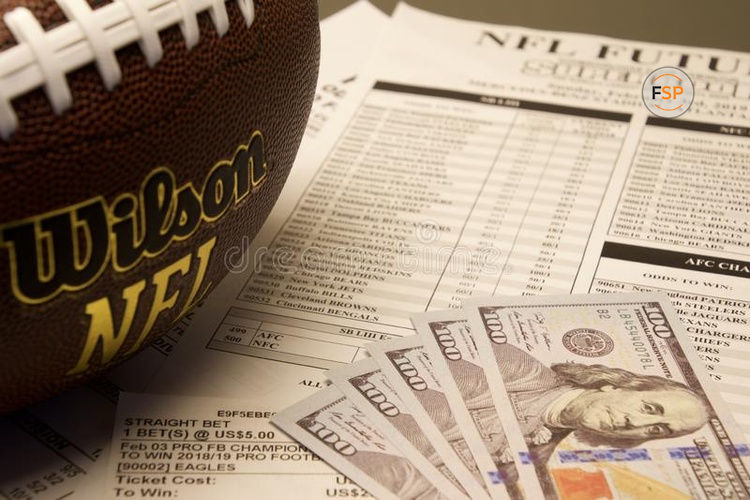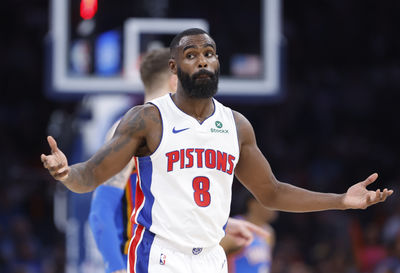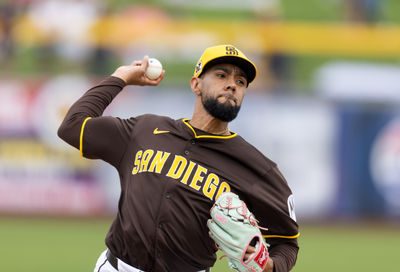Sports Betting 101: Managing Your Bankroll
Practicing good bankroll management is critical when it comes to being a successful sports bettor. It’s not the most exciting topic in the sports betting industry but is one of the most critical. Whether you make wagers casually or treat it as a second job, all thriving sports bettors practice responsible bankroll management. The quickest way to find yourself in an uncomfortable financial situation is to poorly manage your bankroll.
The margins in sports betting are razor-thin. Bettors will profit if they win 52.4% of the bets after accounting for the standard -110 vig. Since winning more than 60% of your bets is practically unheard of, the difference between being extremely profitable and losing all of your money is just a few percentage points in each direction. That is why properly managing your bankroll is the most important skill in sports betting outside of picking the right spots to place your money.
What Is Bankroll Management?
Unlike in life, your ability to generate more money in sports betting is only possible using your current money. You can’t take out a loan or expect an influx of cash at the end of a pay period. That’s why if you are too aggressive and your bankroll dwindles, you are not going to be able to generate additional revenue without redepositing money into your sports betting account. You have to protect your bankroll responsibly.
You can’t look at sports betting as a “get rich quick” scheme. Due to the slim margins, short-term variance can put a significant dent in your bankroll if you are too aggressive. You have to look at sports betting as a long-term process. If you play intelligently and responsibly, you can win a substantial amount of money over a long period of time.
The Importance Of Bankroll Management
Betting on sports is incredibly fun and thrilling. However, some people run into trouble when they do not budget properly or plan ahead of time. That’s why it is critical to set aside a budget that is solely for the purpose of sports betting. Set up a checking account that is only used for depositing and withdrawing money to and from sportsbooks. One of the most popular sayings in gambling, as well as the stock market, is “do not risk what you cannot afford to lose.” Every sports bettor will have a different number that is an appropriate budget. The important thing is that if you lost your entire sports betting bankroll, it wouldn’t affect your day-to-day life in a significant way.
While every gambler will have different advice on what the right starting budget should be, I suggest using 1% of your equity. If you have $100,000 in the bank, set aside $1,000 for the purposes of gambling. If you lost all of that cash, it wouldn’t ruin your life by any means. It’s important to determine how much money you are willing to risk. Although there is a ton of skill and strategy in sports betting, there is also plenty of luck involved. We don’t want to see you throw your life savings away because you risked far too much cash and lost it on a “bad beat.” Start conservatively and once you have some success, then perhaps you can add more to the budget.
Once you have determined your budget, set up some guidelines, particularly how much to wager on each bet and what your maximum individual bet should be. You should never risk more than 5% of your bankroll on any single bet, even if you are extremely confident.
Don’t chase your losses. There are going to be times when you run into a string of bad luck. You may lose your entire initial deposit. If that happens, don’t get frustrated or more liberal with your money. If you lose $500, don’t deposit $5,000 the next time. Keep working in small increments so that you don’t risk more than you are willing to lose. It’s important to stay disciplined and to adhere to your routine. Sports bettors get into trouble the most when they attempt to chase their losses by betting more to more quickly gain back their losses. This is one of the worst mistakes you can make in sports betting. Remember to stay the course, as things will eventually even out. “Regression to the mean,” as they say in the stock market.
It’s also important to not quit just because you recently hit a bad spell. For every string of bad luck, there are just as many hot streaks. Continue to make smart and data-driven decisions. Eventually, it should pay off if you bet intelligently and responsibly.
In the fine print of just about every gambling advertisement, sportsbooks remind bettors to gamble responsibly. Chasing losses is the most obvious example of not adhering to a solid bankroll strategy. But there are other ways gamblers can bet irresponsibly. If you are on a hot streak, don’t start to bet more than what you said was your maximum wager. I know it can be very tempting to increase your wagers when you are winning. However, this is the quickest way to lose all of your profits quickly.
Just like in life, it is important to utilize a long-term strategy. Sports betting is difficult and the only way to be successful is to put an abundance of importance on bankroll management. This will allow you to stay afloat when you inevitably run into some bad luck.
Bankroll Management Strategies
Fixed Unit Model
All bettors should be familiar with the term “unit.” A unit is 1% of your bankroll. So if you deposit $1,000 specifically for sports betting, a unit would be $10. If you decide to adhere to the fixed unit model strategy, you actually would always wager one unit on every single bet. No matter the odds, your confidence, or the hot or cold streak you are on, you always wager the same amount.
There are pros and cons to this strategy. For starters, this strategy makes it very easy to keep track of your wins and losses, which is something all responsible bettors should do no matter what. Due to the odds that always favor the house, a sports bettor needs to hit on 52.4% of their bets to be profitable. Since you are always betting the same amount, you will always know exactly what you need to happen to be successful.
That said, it is difficult to have the discipline to only bet a single unit on every single wager. Bettors are often more confident about certain picks than others, and they like to bet accordingly.
Percentage Model
The percentage model is similar to the fixed unit model. Instead of sticking with one unit for every wager, the bettor wagers a fixed percentage on each bet. However, the amount of money that you wager is based on your current bankroll, not the bankroll that you started with. Therefore, if you bet 2% of your $1,000 on your first pick, you are risking $20. Let’s say you win your first bet. That means that you should now have approximately $1,018 in your account (since the sportsbook takes a small portion also known as the juice). The next time you go to bet 2% of your bankroll, you would be risking $20.36.
Most gamblers like this model more than the fixed unit model because you win more money when you are on a hot streak. The more you continue to grow your bankroll, the more you are risking, but you also stand to win even more money since your betting amount and potential earnings increase. However, if you start on a cold streak, it takes much longer to dig out of a hole. Since bettors who have lost bets early have less of a bankroll, their betting amounts would also be less, meaning their potential payout is also less. That said, this strategy will help you stretch your money out for a long period of time.
Confidence Model
The confidence model allows bettors to bet with more flexibility than the fixed unit or fixed percentage models. This model should only be used by seasoned sports bettors, as it is much easier to lose your entire bankroll quickly. However, the potential profits are much higher when employing this model. Using the confidence model, a bettor can wager anywhere between one unit and give units based on their confidence on any particular pick. Perhaps you decide that 5% of your $1,000 (or $50) is the most you would like to risk on a single bet. That means that the most you should bet on a single outcome are five units. Unlike the fixed unit model, you don’t have to bet a single unit on each wager. There are going to be times when you have more confidence in one wager than another. But that’s why it is so critical to set up a maximum wager.
Suppose there are three NFL games on any given Sunday that you want to wager on. Using this model, you can bet different amounts (one through five units) on each game, depending on your confidence.
If you are going to employ the confidence model, you need to be incredibly honest with yourself and adhere to the initial guidelines you set up. For example, a bettor could make a five-unit wager to win back the money that he or she lost the previous day. But that shouldn’t be the reason to risk five units on one pick. You should only risk five units if you are extremely confident in the pick. Your current financial position should not factor into your decision. The most important thing when it comes to the confidence model is to never wager more than the maximum of five units.
The confidence model also allows you to sprinkle in half-unit plays on picks with more upside such as parlays and or moneyline underdogs. That is one of the reason’s why I employ this model.
Tracking Your Results
All sports bettors should be keeping track of their results regardless of which bankroll management strategy they decide to use. Perhaps there are certain sports that you are dominating and others that are dwindling your bankroll. In this case, it would be smart to stick to the sports that you are most successful with. Are you better at spread bets or moneyline bets? Or perhaps you hit your over/under wagers at a ridiculously high rate. You can find out your strengths and weaknesses fairly easily by simply tracking your results on a spreadsheet.
Bankroll management is pivotal when it comes to being a profitable sports bettor. Setting your budget and unit size are important first steps, but certain betting methods will also allow you to increase your wager size depending on your confidence level. Be sure to track your results so you can pinpoint where you excel and where you struggle. If you properly manage your bankroll and accurately handicap games, you should see a steady increase in your profits. Just remember, betting on sports is a process. Trust it. Don’t get overly ambitious and do your best to keep your emotions out of it.








